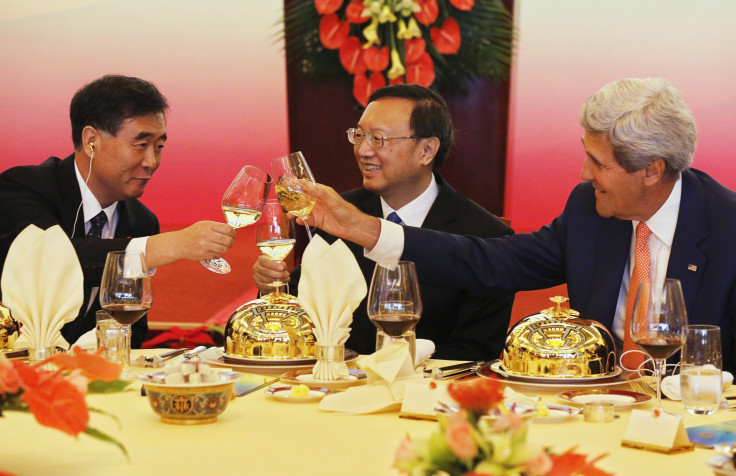China Promises US It Will Speed Up Reforms On Market Exchange Rate For Yuan

China will speed up the process of moving the yuan toward a market-determined exchange rate, Chinese Vice Premier Wang Yang told a U.S. delegation Wednesday, while stressing the need to move ahead with care.
Wang’s statement came during the Strategic Economic Dialogue between China and the U.S. in Beijing, which began Tuesday. While the U.S. has been asking China to move its currency toward a market-based exchange rate, China is worried about how Beijing will manage the transition. The yuan has depreciated 2.4 percent against the U.S. dollar so far this year after the People’s Bank of China purchased dollars, Bloomberg reported, adding that the yuan has appreciated about 33 percent against the dollar since 2005.
“China should quicken the pace of reforms and opening up and quicken the exchange rate system reform, but we should pay attention to the details,” Wang said, according to Reuters, adding: “If reforms go too fast, we could be bogged down in details and make fatal mistakes in China's reforms and opening up. If it's too slow, China's reform process could be affected and the United States ... will put pressures (on China).”
U.S. Treasury Secretary Jack Lew told CCTV America, the U.S.-based arm of China Central Television, according to Bloomberg: “China needs a market-determined exchange rate, it’s something the government has committed to in its own policy statements and it is an important part of our conversations,” adding: "The first step would be transparency -- if it was clear when the government was intervening and why -- that would help quite a lot.”
Senior leaders from both countries, including President Xi Jinping, U.S. Secretary of State John Kerry and Lew, are expected to also discuss a bilateral investment treaty at the two-day summit.
“We both depend on an open global trading system in which workers and companies can compete on a level playing field,” Lew said, according to Associated Press.
© Copyright IBTimes 2025. All rights reserved.






















